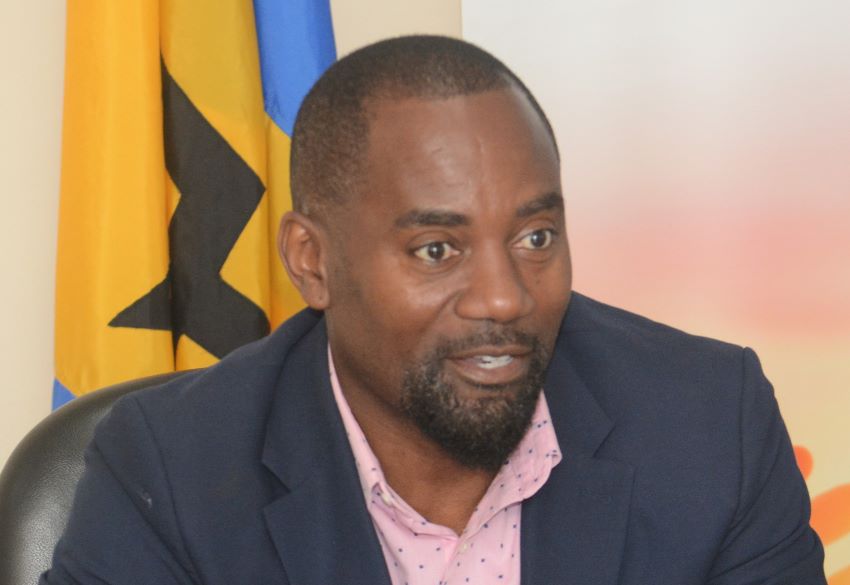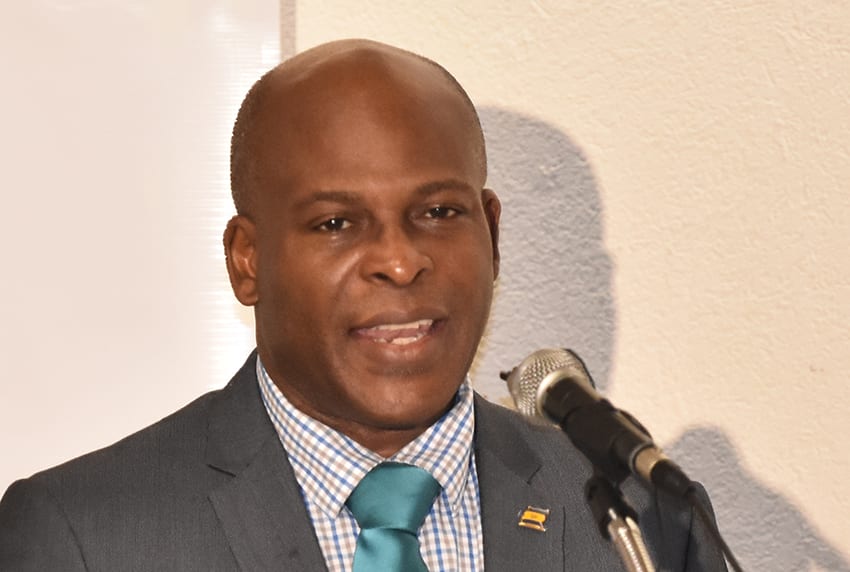
The National Policy on People With Disabilities has been laid in Parliament to address a cross section of issues like accessibility and health for members of society with disabilities.
Minister of People Empowerment and Elder Affairs, Kirk Humphrey, stated that more must be done to make the country more accessible through the retrofitting of old buildings and making roads ‘user friendly’ for the blind and visually impaired.
He made these remarks at the annual walk in commemoration of White Cane Safety Day, which was held in Warrens on Monday.
“The policy has been laid in Parliament. It will be debated within the next four weeks, I believe, and we have the draft legislation. Now this legislation …speaks to things that we highlighted in the policy, in relation to accessibility, in relation to housing, health and employment.
“It has, I think, fairly radical approaches to employment so that we can ensure persons with disabilities have better access to employment as well. So, we look forward to debating that before the end of this year, and passing into law the requirements to make sure that we protect the rights of persons with disabilities in Barbados, specifically as it relates to persons who are blind and visually impaired,” he disclosed.
In relation to the policy, Mr. Humphrey stated that the goals to be achieved include anything relating to accessibility, adequate standard of living, social protection, awareness building, educating, training and lifelong learning.
It also deals with employment, health, legal recognition, participation in society, protection in disasters and emergencies, protections of right to life, regional and international cooperation, respect for privacy, getting better statistics, women, and children.
Minister Humphrey also mentioned disability benefits and thanked Prime Minister Mia Amor Mottley, who in the 2023 Budget, spoke of expanding the categories of persons who were able to benefit with disabilities, which included those with multiple sclerosis, autism, and cerebral palsy. For the first time, these benefits have now been extended to children.
“We’ve now widened the categories of persons who received benefits from the government. So, we’re not only talking in relation to the policy, but we’re actually doing, and I want to thank the Prime Minister, Minister Straughn, all in the Ministry of Finance, because it takes money to be able to achieve these things. And I am very happy to be Minister at this time because it allows me to be able to do these things….”, he said.
The People Empowerment Minister also indicated that the country needs to address the issue of ‘unnecessary blindness’. He said after attending a conference hosted by the International Agency for the Prevention of Blindness (IAPB), that there was in depth conversation and literature surrounding this topic.
He believes that children should be tested more often to help diagnose not just ‘unnecessary blindness’, but also Diabetes and other non-communicable diseases. “If we treat [issues] earlier, we could probably prevent blindness in the long run, so that we can become a movement.

“We have to do better as a people, and we have to do better as a country. So, I give my commitment that we will do what it is that we need to do to be able to do better for persons who are blind and as a society, we will work together toward educating Barbadians about simple things, like parking in disabled parking spots … which really has to stop now…. People get impatient if you’re trying to cross the road and these things do not require law; they do not require policy; they just require people to be human, and we have to have conversations around those things,” he told participants.
Disabilities advocate, Edmund Hinkson, who also participated in the walk, revealed that the Rights of Persons with Disabilities Bill is in draft form and hopes that it will be debated soon, once there is further consultation with stakeholders and the relevant ministries.
He also referred to the National Policy on People With Disabilities, and highlighted one area of the policy, which he called ‘the first thematic area’ outlined in the policy – accessibility. Mr. Hinkson told those present that accessibility is key and was being emphasised by the National Society for the Blind at the walk.
“This [walk] is emphasising and trying to bring awareness to the public on the challenges of accessibility in Barbados, both man built and the natural environment for people with sight problems, and who are blind.
“This is key because it involves, obviously wider participation of the blind and people with disabilities [and] people with physical challenges, as well in all aspects of Barbadian society, which is their right as human beings and their right under the Constitution,” he added.
The National Society for the Blind, with the support of the Ministry of People Empowerment and Elder Affairs, hosted its annual walk in commemoration of White Cane Safety Day. This day is commemorated each year on October 15 and is the second significant day in the month of October surrounding the issue of blindness and visual impairment.
